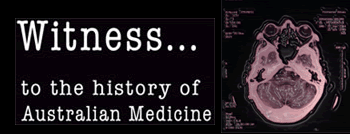


Tobacco Control: Australia's Role
Transcript of Witness Seminar
Introduction
Building the case for tobacco control
Producing, and Responding to, the Evidence
Campaigning for Tobacco Control
Economic Initiatives in Tobacco Control
The Radical Wing of Tobacco Control
Revolutionary Road
Tobacco Industry Strategies and Responses to Them
Campaign Evaluation
Managing Difficulties in Light of Community Consensus
Radical Wing Again
The Process of Political Change
Tobacco Campaigns Up Close
A Speedier Pace of Change
Political Needs and Campaign Strategies
Litigation and its Impacts
Insights from Tobacco Control
Tobacco Control in Australia in International Perspective
Appendix 1: Statement by Anne Jones
Endnotes
Index
Search
Help
Contact us

Tom Roper: What year did picture theatres go non-smoking?
I can remember going into a place in London and you virtually had to have your own axe to carve your way through the smoke. It was probably in the 1970s. As you said, it was done for fire prevention reasons and then, as a side-effect, people got used to being in a non-smoking environment.
John Cain: The occupational health and safety awareness much later gave the passive smoking issue real life, didnít it? That was what it was about, basically.
Harley Stanton: It probably first came in the airline industry, didnít it? And then it spread out.
Ron Borland: There were bans on smoking in suburban buses and trains in Australia for some time before smoking in aircraft was banned.
Lyn Roberts: I can remember Neville Owen[148] did some evaluation (on smoke-free workplaces) at Telstra, or was it Telecom? When was that?
Ron Borland: They were the workplace smoking bans that came in, in the case of Telstra, on 1st of January 1988 and then the Commonwealth public service bans on workplace smoking came in on 1st March 1988. We did the first longitudinal study of the impact of those bans.[149]
Prior to that, in 1986 I think, when the NHMRC report on passive smoking[150] came out and then the US Surgeon Generalís Report[151] a couple of months later - that is five or six years after the first evidence - we were starting to take action on passive smoking.
John Cain: When the promotion campaign got under way, was there any attempt to educate or influence the media - medical writers, editors etcetera - itself?
The reason I ask is that David White tells the story that (Tobacco legislation was being discussed in Cabinet) the Age was fine but the Herald Sun was less than supportive. David went along to talk to the Murdoch chief executive, John DíArcy, and told him what we were doing.
He said, ĎGet out. Iím not interested in that. Iím more concerned about under-age sex.í That was the reception David got. So in some editorial management circles there was stiff opposition. That was the late 1980s.
So was there any attempt to educate the media?
David Hill: This is not to excuse the push-back from the Murdoch press, but the Age had really taken on that campaign. So maybe part of that stance by the Herald Sun was, Ďour opposition are doing it, why should we?í
John Cain: I hope there was more to it than that.
David Hill: In answer to your question (about educating the media), yes, all of us worked as closely as we could with the specialist medical writers. But everyoneís had the experience that itís the other journalists who often are not well backgrounded and stories come through, and they donít report them very well.
Kathy Barnsley: The editor of the Hobart Mercury was a consultant to the tobacco industry.
Kate Joel: David, your point is very apt because I remember when I was running Quit here in 1985, we did a lot of work with various sectors in the community, including the media.
At that stage, if the Age supported a campaign you were running, the opposition would not touch it. Just on those grounds alone. There was no recognition on their part that something like tobacco control was something they both should support in the greater public good. That was the reality in 1985.
John Cain: Iím disappointed to hear that. I thought they were better than that.
 |
Witness to the History of Australian Medicine |  |
© The University of Melbourne 2005-16
Published by eScholarship Research Centre, using the Web Academic Resource Publisher
http://witness.esrc.unimelb.edu.au/154.html